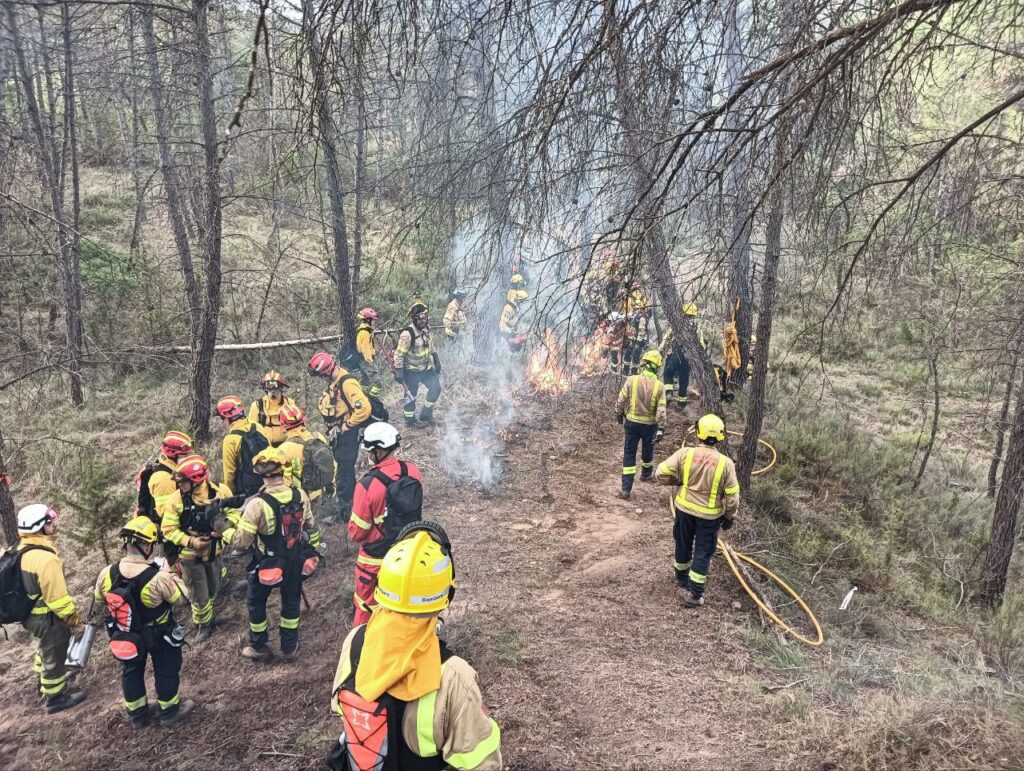In a concerted effort towards advancing firefighting strategies, different international firefighting teams conducted a series of prescribed burns during September and October 2023, showcasing collaborative initiatives in the framework of FIRE-RES. The main goal of such activities was to build capacity among fire managers, as leaders of a paradigm shift that is leaving the suppression approach behind.
Notably, researchers from the Forest Science and Technology Centre of Catalonia (CTFC) joined forces in Port del Compte to execute controlled burns, contributing valuable insights to the ongoing firefighting applied research. Further emphasising international cooperation, prescribed burns in Oristà and Roses (Catalonia) served as platforms for the exchange of experiences among fire managers.
This latter collaborative endeavour involved fire services from different regions, including the Dutch Overijssel and Brandweer fire crews, along with the Netherlands Institute for Public Safety (NIPV), a reference for crisis management and firefighting.
The intermingling of expertise and methodologies aimed to enhance global firefighting capabilities.
The dynamics of the international prescribed fire course led by the Pau Costa Foundation have also been integrated into the CFRS prescribed fire program to enhance this collaborative work among fire managers.

Prescribed burning, also known as controlled or planned burning, is a proactive and intentional fire management technique used in forestry, agriculture, and conservation. This practice involves carefully planned and controlled ignition of vegetation under specific environmental conditions to achieve predetermined ecological and land management objectives. It can be considered as a prevention measure to be applied all year round to improve the resilience of forest landscapes.
This practice demands expertise and coordination among various agencies and firefighting actors to be implemented safely and effectively. Despite being sometimes misunderstood by the general public, its ecological benefits include fuel and hazard reduction, ecosystem restoration and control of invasive species.
